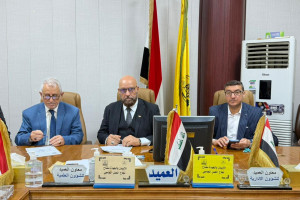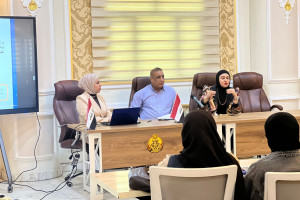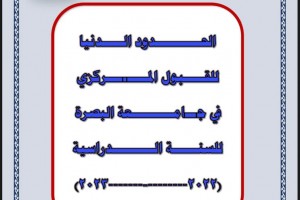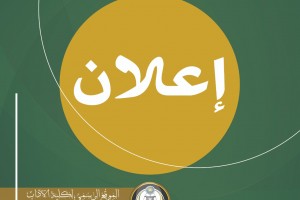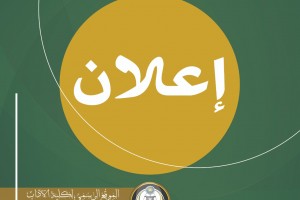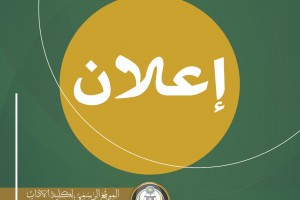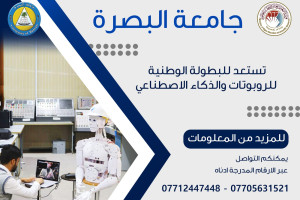
Prof. Dr. Kazem Khalaf Al-Ali, the instructor at the Department of Translation at the College of Arts - University of Basrah, participated in a symposium on “The Ins and Outs of Translation Theories”, which was held by Hamad Bin Khalifa University in Qatar on the occasion of the International Day of Translation, on September 30, 2021. The symposium was moderated by Dr. Ali Al-Manna.
At the beginning of his participation, Dr. Al-Ali stated that the International Translation Day comes in remembrance of the precious blood that translators have sacrificed since ancient times and in honor of the great efforts and burdens that translators bear as they transfer texts from one language to another and from one culture to another.
Dr. Al-Ali appealed to the Secretary-General of the United Nations to change the name of the celebration occasion from "International Translation Day" to "International Translators' Day".
Speaking about translation theories, Professor Dr. Kazem Al-Ali mentioned that translation is an Iraqi Babylonian invention, as mentioned in the holy books, including the story of the “Tower of Babel” mentioned in the Book of Genesis. But at a time when the practice of translation was old, the theories of translation in their scientific and academic form are recent.
For the importance of translation theories in the translation lesson, Al-Ali said that theories provide the translation student with a conceptual device that enables him/her to understand the mechanisms of the translation process and enables him/her to talk about translation scientifically and logically.
As for the difficulties that students face in this course, they are concentrated on the student's failure to complete language skills and the weakness of the theoretical aspect of the early academic stages.
In his response to the centralization of translation theories and the existence of features of Arabic translation theory, he indicated that the theoretical translation production is what determines the issue of centralization, and despite the increase in the number of Arabic scholars of translation inside and outside the Arab world, they have not yet been able to establish a theory with Arabic features like the European and Western theories.

